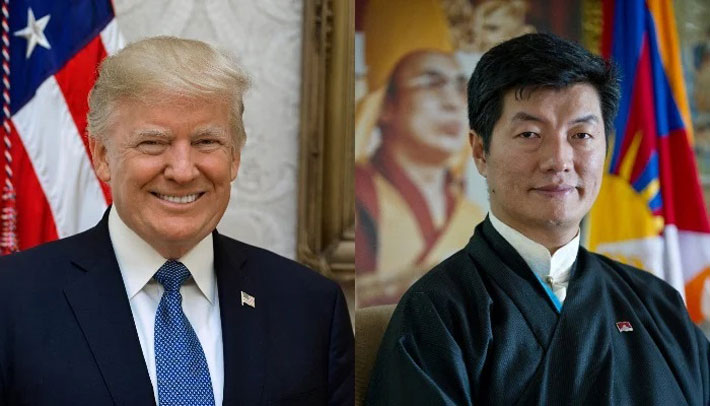INDIAN ARMED FORCES CHIEFS ON OUR RELENTLESS AND FOCUSED PUBLISHING EFFORTS

The insightful articles, inspiring narrations and analytical perspectives presented by the Editorial Team, establish an alluring connect with the reader. My compliments and best wishes to SP Guide Publications.

"Over the past 60 years, the growth of SP Guide Publications has mirrored the rising stature of Indian Navy. Its well-researched and informative magazines on Defence and Aerospace sector have served to shape an educated opinion of our military personnel, policy makers and the public alike. I wish SP's Publication team continued success, fair winds and following seas in all future endeavour!"

Since, its inception in 1964, SP Guide Publications has consistently demonstrated commitment to high-quality journalism in the aerospace and defence sectors, earning a well-deserved reputation as Asia's largest media house in this domain. I wish SP Guide Publications continued success in its pursuit of excellence.
America’s Tibet Policy
 |
The Author is Former Director General of Information Systems and A Special Forces Veteran, Indian Army |

A new landmark was established in US-China relations when US President Donald Trump signed the Tibetan Policy and Support Act (TPSA) 2020 on December 28, 2020 making it a law. Earlier the TPSA was passed by the US Senate. The TPSA reiterates America's commitment to support the cause of Tibet and the Tibetan government in exile - Central Tibetan Administration (CTA). A jubilant Lobsang Sangay, President of CTA tweeted - “History made again! President Trump signs the Omnibus bill, which means the Tibetan Policy and Support Act of 2020 is now LAW!” Sangay also said, “By passing the TPSA, Congress has sent its message loud and clear that Tibet remains a priority for the United States and that it will continue its steadfast support for His Holiness the Dalai Lama and the CTA.”
As expected, the Chinese foreign ministry accused the US of meddling in its internal affairs and had even earlier warned the US against signing the legislation passed by the Senate into law by the President. China’s tail was already afire when in July 2020, US Secretary of State Mike Pompeo stated that the US would restrict visa access for Chinese officials involved in blocking diplomatic access to Tibet and engaged in human rights abuses there. This was followed in October 2020 by the US appointing Robert Destro, Assistant Secretary of State for Democracy, Human Rights and Labour, as the Special Coordinator for Tibetan issues.
Broadly, the TPSA calls for -
- establishment of a US Consulate in Tibet’s main city of Lhasa;
- absolute right of Tibetans to choose a successor to the Dalai Lama;
- setting up of regional framework on water security and greater participation from the community in dialogue with China on monitoring the region’s environment, and;
- establishing dialogue between the Chinese government and the Dalai Lama.
A significant part of TPSA states that America will oppose Beijing’s attempts to install its own Dalai Lama “in a manner inconsistent with Tibetan Buddhism in which the succession or identification of Tibetan Buddhist lamas, including the Dalai Lama, should occur without interference”, denouncing China’s ‘Measures on the Management of the Reincarnation of Living Buddhas’ in 2007 and Chinese foreign ministry statement of 2019 that “reincarnation of living Buddhas including the Dalai Lama must comply with Chinese laws, regulations and follow religious rituals and historical conventions”. China arbitrarily installed a young boy as the 11th Panchen Lama in 1995.
In October 2019, China’s Communist Party (CCP) published guideline for enhancing ethnic unity and cracking down on “criminal acts” that sabotage ethnic unity or cause ethnic separation. In January 2020, China’s People’s Congress of Tibet passed a law making ethnic unity in the region mandatory, making clear that Tibet has been an inalienable part of China since ancient times and that it is responsibility of all ethnic groups to safeguard national reunification. In August 2020, Chinese President Xi Jinping gave directions to intensify “sinicization” of Tibetan Buddhism and mass “‘re-education” of Tibetans to adapt Buddhism to China’s socialist system. Xi also called for improving control over Tibet including water security.
Tibet comprises 26 per cent land mass of China and is the ‘water tower’ of China. The TPSA states, “The People’s Republic of China has already completed water transfer programmes diverting billions of cubic metres of water yearly and has plans to divert more waters from the Tibetan plateau in China.” According to the World Commission of Dams 2020, there are 22,104 dams over the height of 15 m in China. China accounts for 20 per cent of world's large dams. Most of these dams restrict water flow to lower riparian states. China is deliberately weaponising water against India including building a dam on the lower reaches of the Yarlung Zangbo River close to the Line of Actual Control (LAC) in Tibet, which will generate hydropower three times China’s Three Gorges Dam having largest hydropower capacity in the world. Yarlung Zangbo flows into Arunachal Pradesh where it is called Siang and then to Assam as Brahmaputra before flowing into Bangladesh.
How will the TPSA affect China after the Biden Administration comes into force in the US only time will tell? Will China permit the US to open a consulate in Lhasa and if it does, will this consulate know what China is up to? US has a Consulate General in Wuhan but was unaware how China planned to bomb the world including the US by firing the virus from its P4 lab. China appears to be getting away after causing 1.83 million deaths and 84.1 million cases worldwide by January 2, 2021 in addition to ruining the economies of several countries with the pandemic. All the protests against China’s human rights violations in Xinjiang, Tibet and Hong Kong have had little effect. Despite protests over China breaching agreement with Britain over Hong Kong and China’s own proclamation of ‘One Country Two Systems’, China has jailed 10 Hong Kong democracy activists to various prison terms.
Yes, the US can impose sanctions but China will reciprocate accordingly. Joe Biden has called for like-minded partners and allies for competing with “China to hold China's government accountable for its trade abuses, technology, human rights and other fronts.” There is no doubt that China can be hurt most by economic de-coupling but does the world have the mettle to combine and stand up to China? BREXIT apart the European Union (EU) has lost no time in concluding in principle negotiations for a Comprehensive Agreement on Investment (CAI) with China. EU has obviously not learnt from Italy’s experience of opening investments to China and the consequences it has faced including on account of the Wuhan Virus. Global “disunity” to face China is what favours China most.
The Indian Government has not commented on the TPSA. But spokesman of the Chinese embassy in New Delhi has had the audacity to caution India on “an objective and fair stance” on the “highly sensitive nature” of Tibet-related issues and China’s territorial integrity. China is emboldened by India confining itself to ban Chinese mobile apps and restrict Chinese investment but not daring to inflict costs that seriously hurt China despite Chinese aggression in Ladakh. To pressure India, China has been citing the agreement signed in 2003 during Prime Minister Vajpayee’s visit to Beijing that mentions the ‘One China’ policy - recognising Tibet as part of China. But that pact has been nullified by China’s open violation of its key provisions, including that “neither side shall use or threaten to use force against the other.” Many opine it is time for India to speak up and support the Tibet cause but India has not even commented on America’s CSTA. India has contracted a Chinese company to construct part of the Delhi-Meerut Rapid Rail Transportation Project despite China not freeing 39 Indian sailors stranded in Chinese waters on two merchant ships, including one ship since July 13, 2020.





